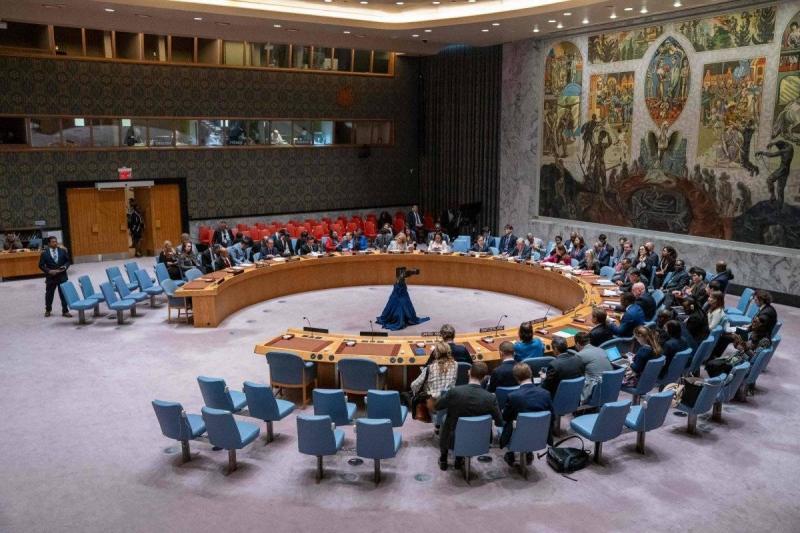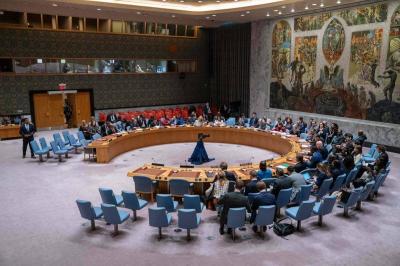It was not surprising that the United States resorted to using its veto against the Arab draft resolution presented by Algeria, which is currently a member of the Security Council on behalf of the Arab group, recommending that the General Assembly accept the State of Palestine as a member of the United Nations, making it the 194th member state. The draft resolution received support from 12 countries, while both Britain and Switzerland abstained from voting. During negotiations in the halls of the United Nations, it was hinted that the observer state status held by Palestine since 2012 could be enhanced instead of pursuing full membership. However, this was unacceptable to the Arab group and the countries supportive of the membership request. It is worth noting that 137 countries in the United Nations have recognized the State of Palestine so far.
The American stance is an indicator, even a significant motivating factor, for the necessity of adopting a new approach or initiative that differs from the existing one to address the serious and credible realities created by the ongoing Israeli war on Gaza for over six months now, along with the conflicts and tensions that have resulted from this open-ended war, which are not confined to a specific location and pose risks to the security and stability of the region. It has become clear due to Israel's inability to achieve its declared goals (namely the cancellation of the legitimate national rights of the Palestinian people and treating the issue as merely a security problem for Israel that must be resolved on that basis) that are continuously reiterated.
In this context, the call that emerged from the extraordinary meeting of the foreign ministers of the Gulf Cooperation Council around a week ago in Tashkent—held on the sidelines of the ministerial meeting of the Council with the Central Asian countries—is of great importance both in nature and timing. It calls for an immediate ceasefire and the convening of an international conference to resolve the Palestinian issue. This conference would involve all concerned parties to reach a solution to the Palestinian issue and establish a Palestinian state in accordance with relevant United Nations resolutions and the Arab Peace Initiative.
Some see this call as seeking to develop a formula that is, of course, an evolved version of the Madrid Peace Conference of 1991. This formula would take into account the lessons learned from the Madrid process, the reasons for its failure, and, of course, the nature of the required international participation that is based on the developments and changes that have occurred since then, which are not insignificant. Whether the proposed "developed Madrid format" is the model suggested, as some view, or another formula based on various factors and lessons that need to be considered, the timing of this proposal is very significant.
The political weight of the group that presented this proposal—initiatives at all Arab, regional, and international levels—comes in a timeframe of less than a month before the regular annual Arab summit next month in Bahrain, as the Middle Eastern region stands at a crossroads that will determine the nature of the response to this "hot regional file" and the course the region will take in the future. All these elements lead to the following suggestion: that the upcoming Arab summit in Manama crystallizes an Arab multilateral diplomatic initiative, with practical participation and formulations.
This initiative should be based on a roadmap for Arab action toward effective international powers as well as toward regional and international groups and organizations with varying current and future weights in terms of relationships with the Arab group or with specific parties within it. The first goal of this required joint Arab diplomacy is the immediate and unconditional cessation of hostilities and the war, which is essential for giving credibility to any international and UN (specifically Security Council) efforts for a peaceful resolution of the conflict. The second goal is to work toward convening the necessary international conference to determine the peace objectives in all their dimensions, with the commitment to achieving these goals, the most important of which is the two-state solution.
The third goal requires identifying the multifaceted and integrated pathways that must be taken to realize the desired peace. These interconnected and integrated goals or challenges are not easy to achieve, but they are possible despite the difficulties if vision, will, and conviction exist that they are the only way forward, despite the numerous obstacles and barriers, for a comprehensive resolution of the Palestinian issue. This issue has always been exploited and continues to be, even if the players and titles sometimes change, to fuel regional conflicts and increase tensions in the region, with dangerous repercussions that extend beyond the Middle Eastern region.




